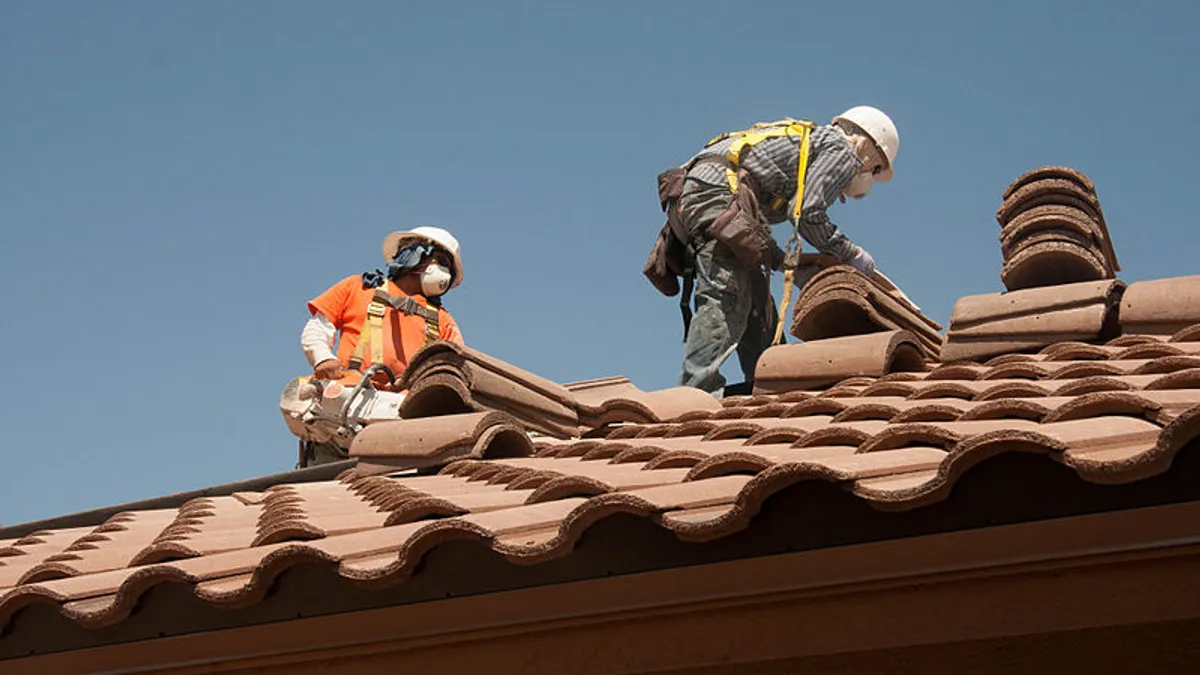Dive Brief:
-
The Florida Department of Business and Professional Regulation (DBPR) eased some licensing and other regulations to fast-track repairs and take some of the burden off businesses whose offices were destroyed as a result of Hurricane Irma, according to the Miami Herald.
-
In the 37 Florida counties covered by the Federal Emergency Management Agency's (FEMA's) Disaster Declaration following Irma, licensed general, residential and building contractors can perform roofing installation and repairs rather than having to subcontract the work to licensed roofing contractors as state law normally requires. The DBPR waived department fees for businesses that have to move or re-open due to Irma.
-
Although a wider range of contractors can perform roofing work, Florida's building codes are still in effect, and all work must be permitted and inspected. The effective dates for the temporary exceptions correspond with the 90-day window in Florida Gov. Rick Scott's emergency Executive Order 17-235 but will likely be extended due to the extensive damage.
Dive Insight:
Florida, which has a stringent set of contractor licensing laws, suspended its licensed roofing contractor requirement in 2004 when Hurricanes Charley, Frances and Ivan rolled through the state causing extensive damage.
The state's building codes were overhauled after Hurricane Andrew devastated South Florida in 1992, with Monroe County, home to the Florida Keys, adopting the toughest requirements, according to the Herald. State officials could take another look at the code in the aftermath of Irma to determine if it needs to be changed in order to promote a greater degree of safety.
Many residents and businesses are resistant to such change, however. After Superstorm Sandy caused billions of damage to coastal New York and New Jersey in 2012, property owners there fought back against some of the stricter codes officials tried to implement in response to the storm's impact.
For example, New Jersey lawmakers killed plans to build barrier sand dunes along segments of the New Jersey shoreline after homeowners complained the move would ruin their ocean views, Michael Bogin, an attorney with Sive, Paget & Riesel in New York City, told Construction Dive in 2015. Property owners in the area also pushed back after they were included in new FEMA floodplain areas, causing some insurance premiums to soar.













